(This post was published on our previous blog on 2/24/2016.)
By Lindsay Closterman, former White House Photographs Metadata Cataloger
In the last few months leading up to the midterm elections in 1962, President John F. Kennedy made several campaign trips in support of Democratic congressional and gubernatorial candidates around the eastern and midwestern United States. We are pleased to announce that all images in the White House Photographs collection documenting these campaign stops are now digitized in full. The photos join already-digitized textual records and sound recordings in forming the official record of President Kennedy’s campaign trips.
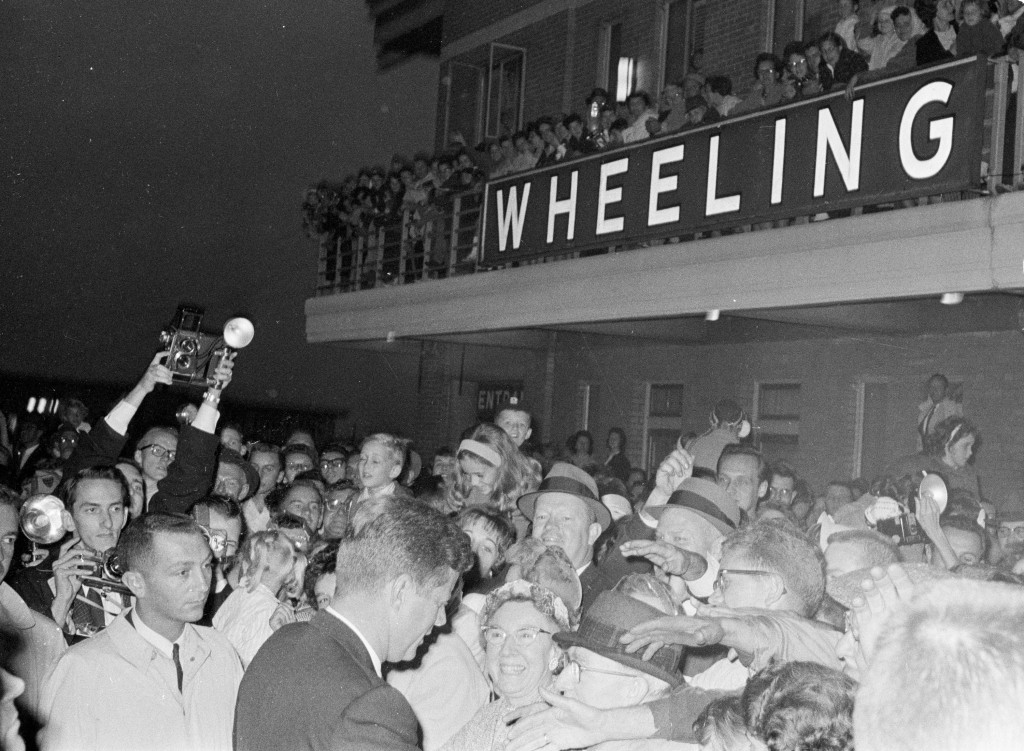
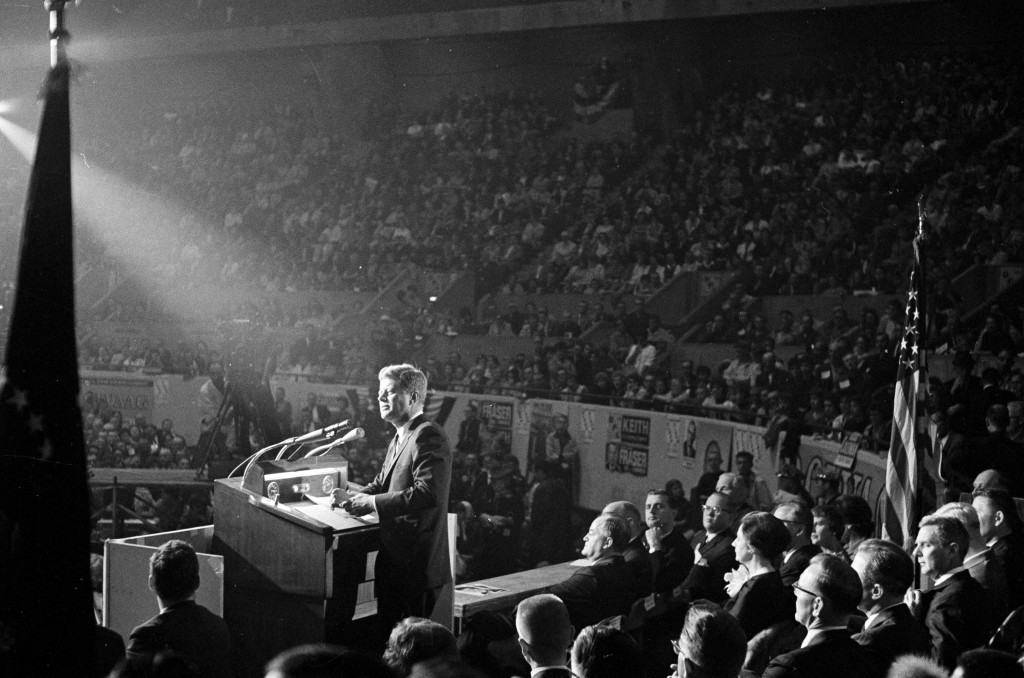
Referring often to the Democratic Party as “the oldest political party in the world,” President Kennedy spoke during these trips of the party’s duty in working toward progressive aims on issues that affected many Americans, namely, securing health care for the aged, ensuring equal opportunity in housing, raising the minimum wage, providing access to higher education, lowering unemployment, and supporting the welfare of the American farmer.
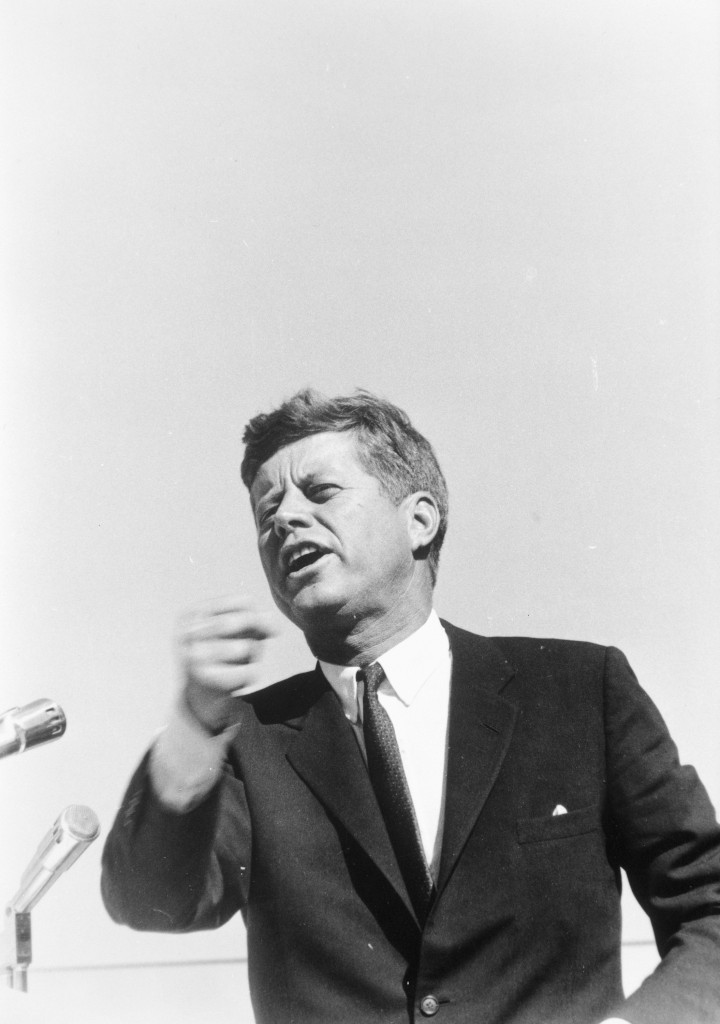
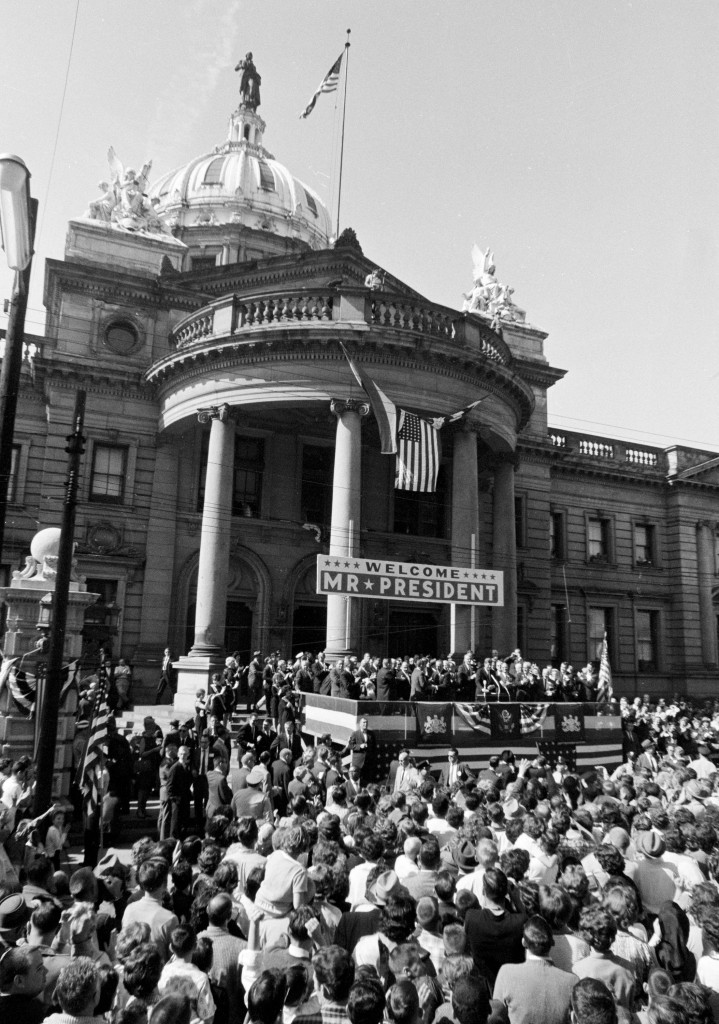
To a crowd in Monessen, Pennsylvania, President Kennedy addressed critics who may have thought these trips were not the best use of the president’s time. He reasoned,
It is the business of every citizen of the United States to make a judgment about what kind of a House of Representatives we are going to have and what kind of a Senate we are going to have, and what kind of a Governor we are going to have in … all … States of the Union. [Read full remarks or listen to sound recording.]
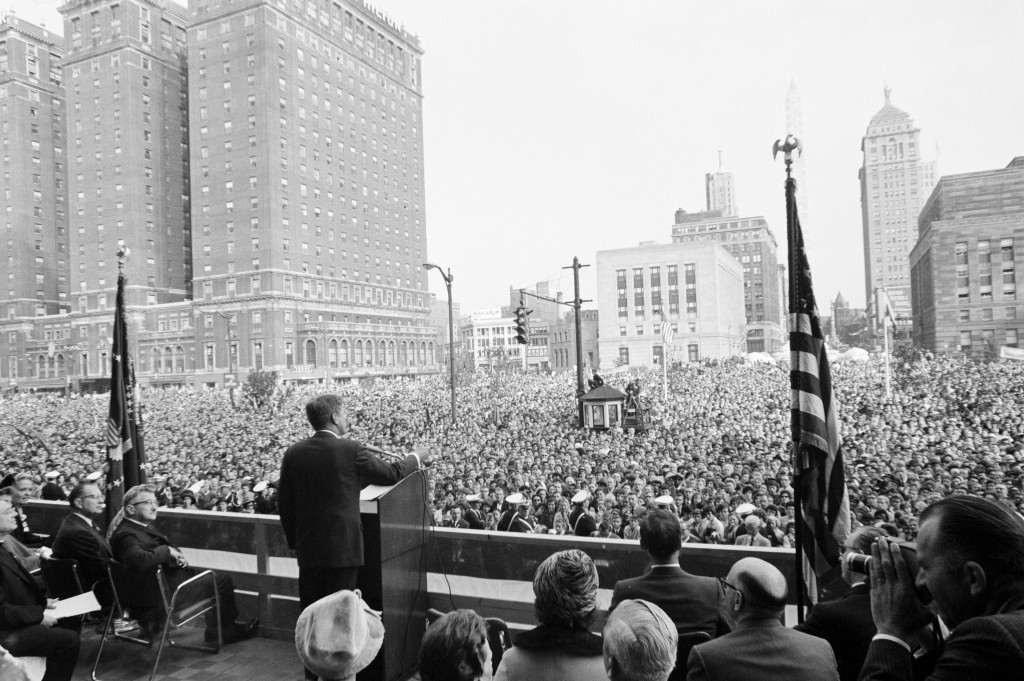
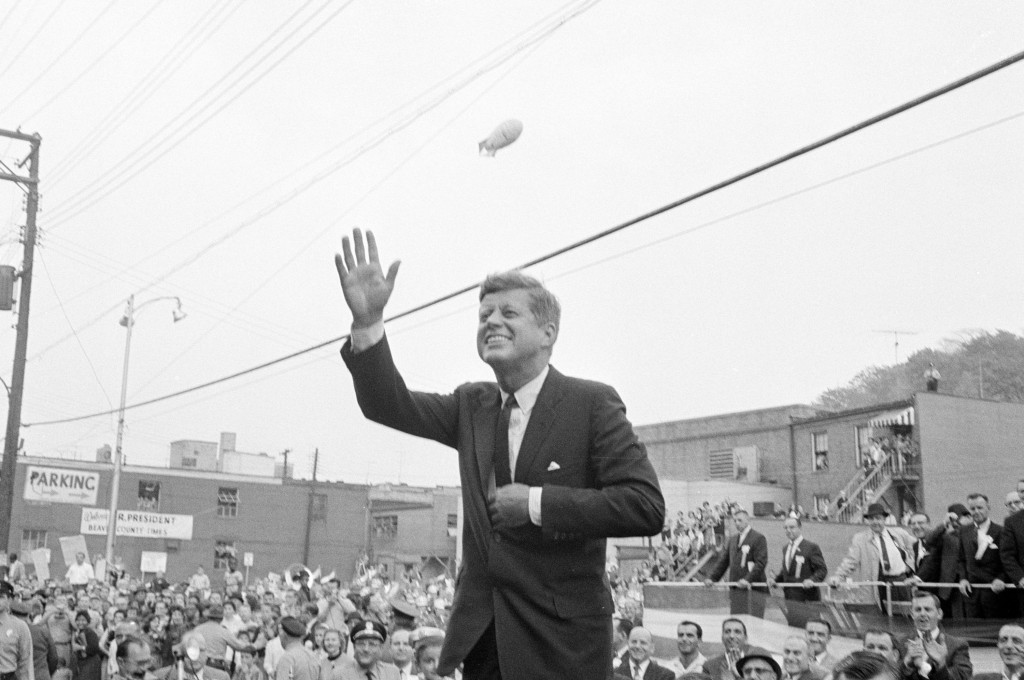
In Pittsburgh, Pennsylvania, President Kennedy stated that he did…
…not believe that in this most critical and dangerous period in the life of our country that Presidents, or anyone else, should confine themselves to ceremonial occasions, ornamenting an office at a time when this country and the world needs all of the energy and the action and the commitment to progress that it can possibly have. [Read full remarks or listen to sound recording.]
At a rally in Flint, Michigan, the president said that even though he was not running for office at the time, he was campaigning “because I believe the election of Congressmen and Senators who support progressive, forward-looking legislation is vitally important” [read full remarks or listen to sound recording].
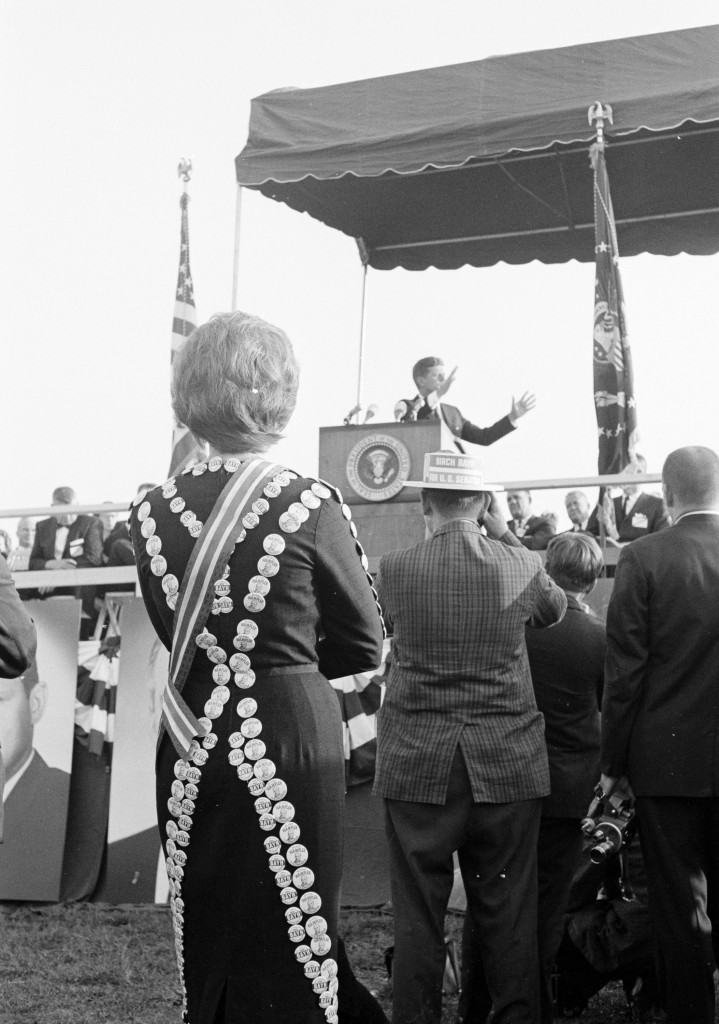
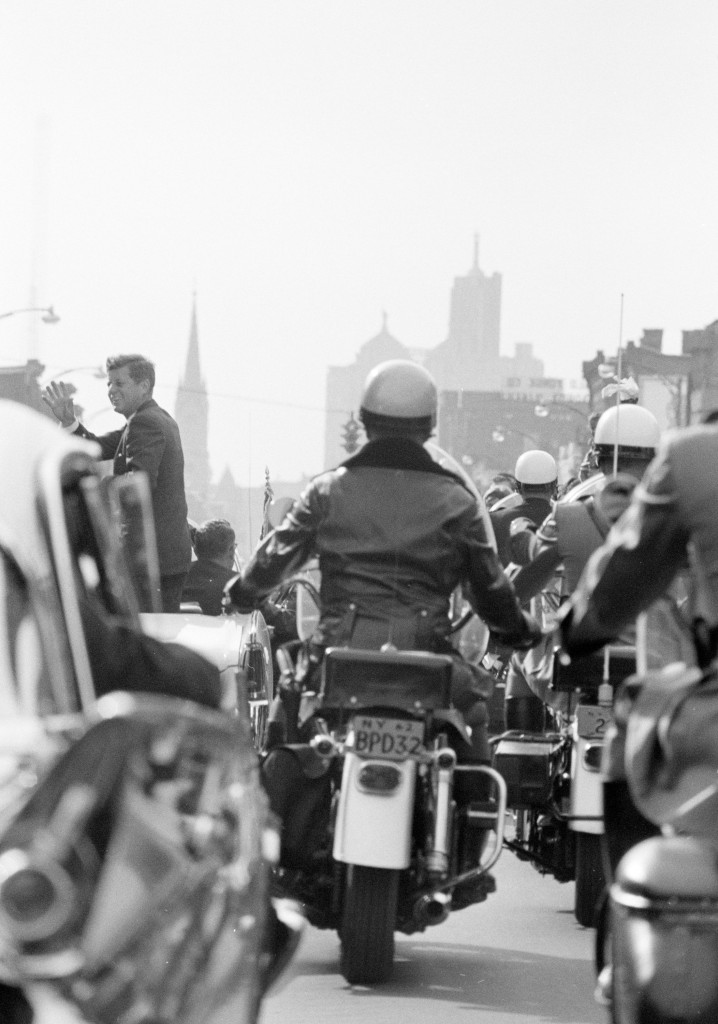
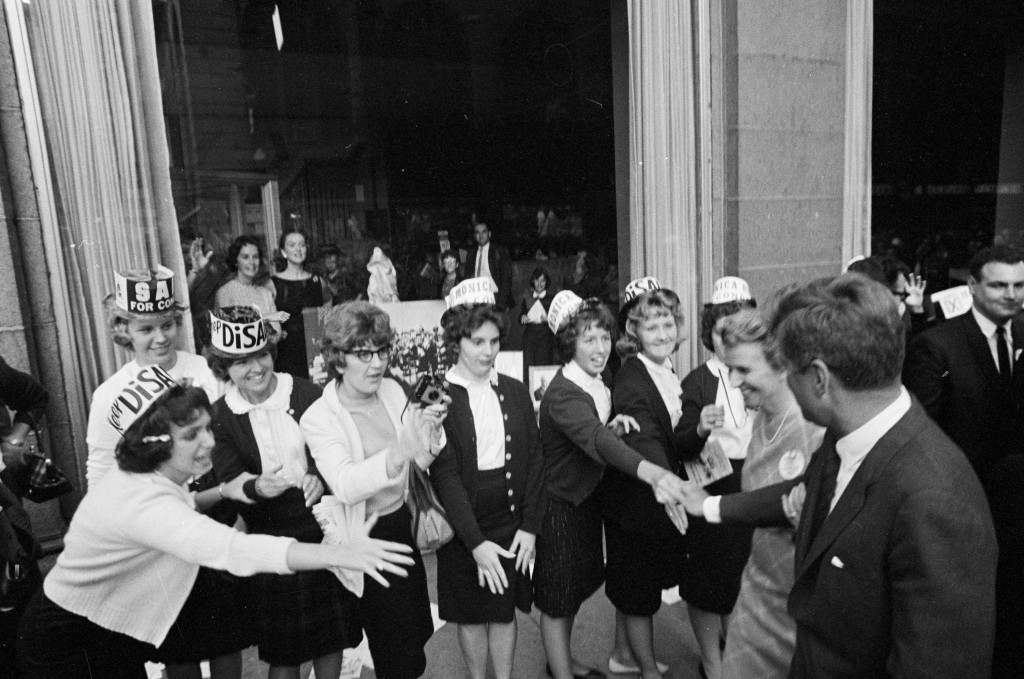
While it was business on behalf of the Democratic Party that brought President Kennedy to over two dozen cities during the campaign, he was still the president, after all. These congressional campaign photos show not only speeches delivered by a president in support of individual candidates, but also interactions of a president with his fellow citizens. Members of the public came out in droves to see President Kennedy and he was eager to meet them as well, often stopping his motorcade mid-route to greet supporters.
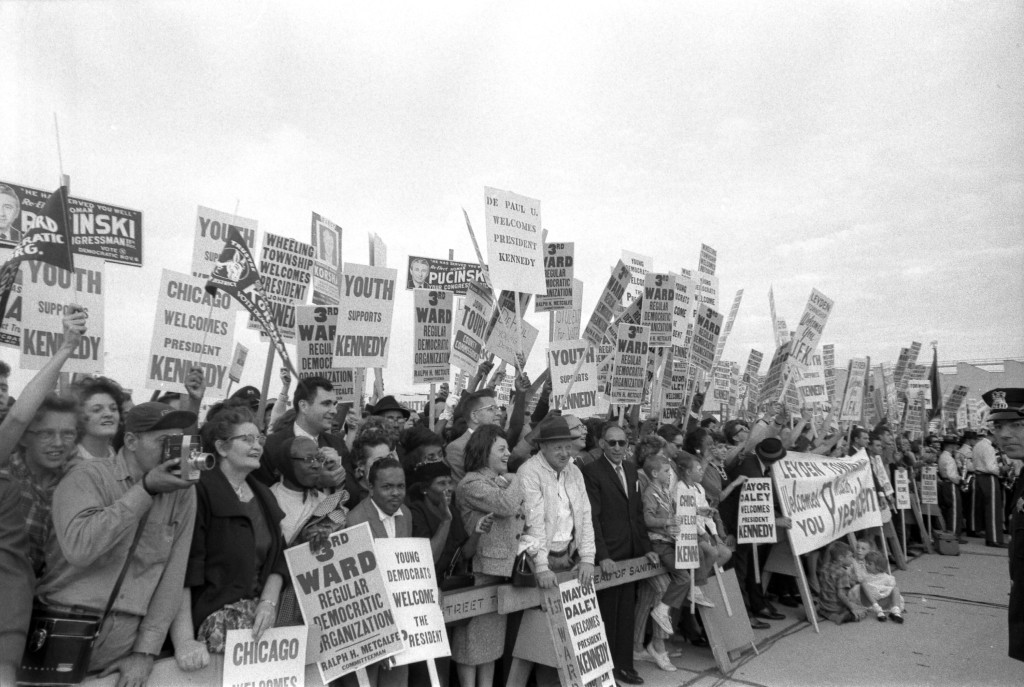
From the bride in Minnesota who encountered President Kennedy along his motorcade route through Minneapolis (on her wedding day, no less), to the high school senior class president in Lakewood, Ohio, who presented the president with a football signed by the school’s football team, to the New Jersey congressman’s son who had written a letter to the President (and to Premier Khrushchev!) just a few months earlier, average citizens were eager to see their commander-in-chief in person.
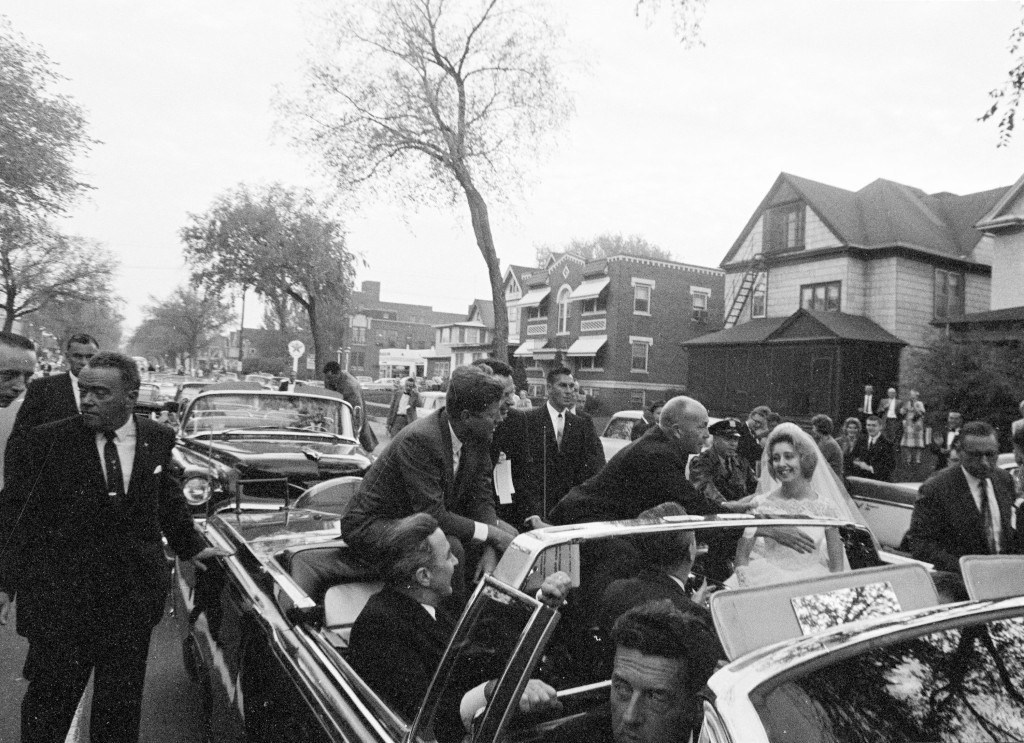
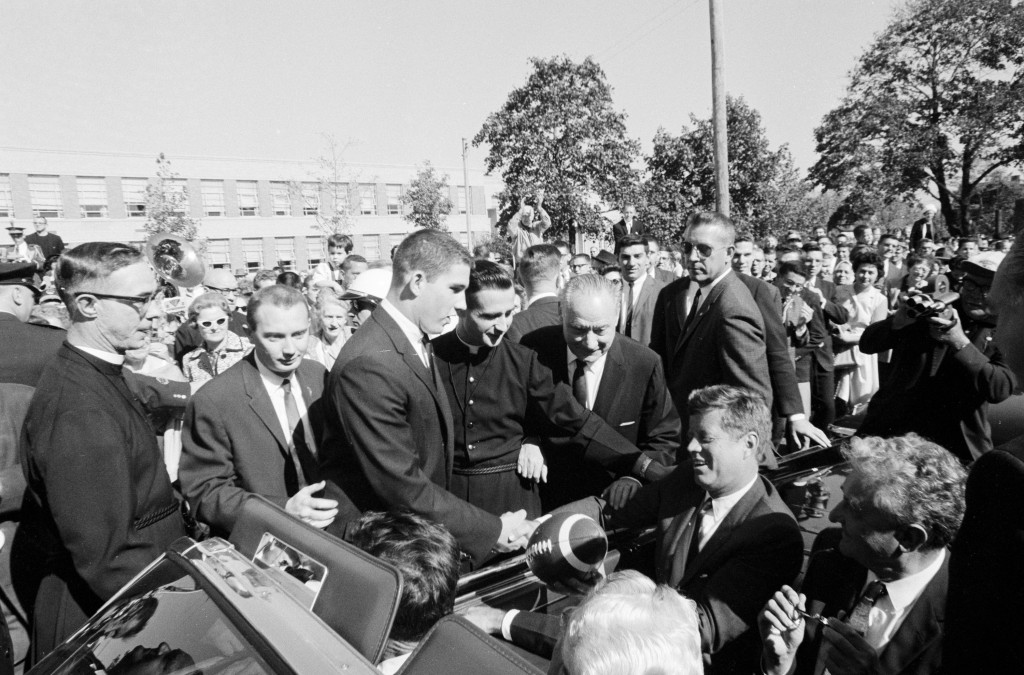
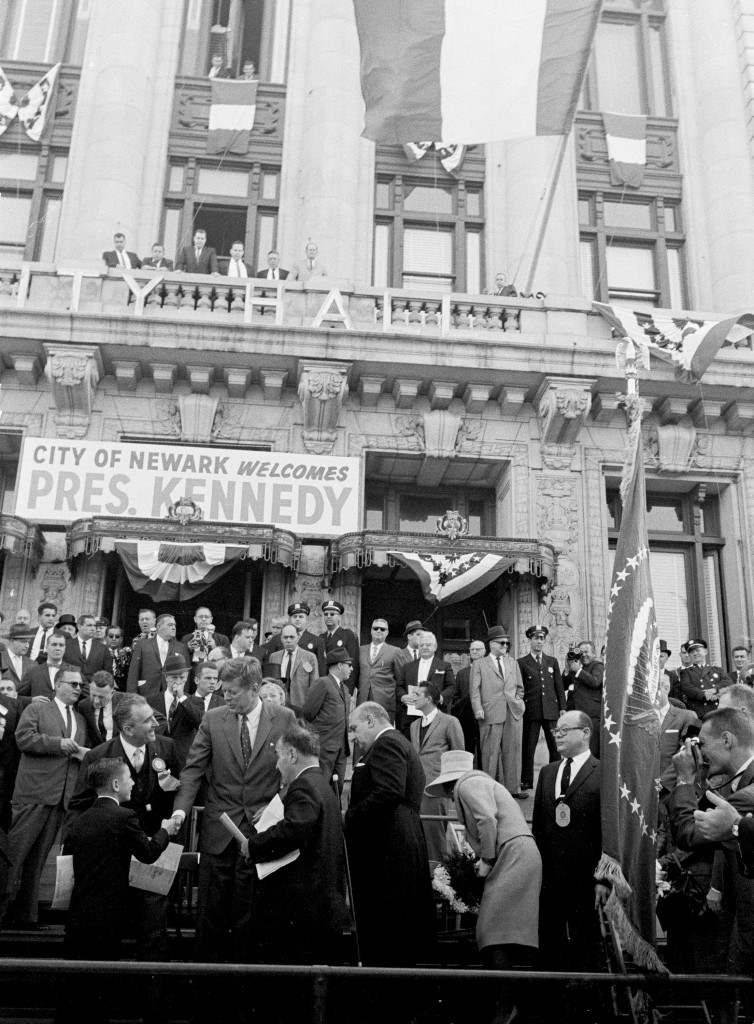
In Chicago, however, in the midst of what would be President Kennedy’s final congressional campaign trip, history intervened abruptly and called him back to the White House; his last few campaign stops coincided with the early days of the Cuban Missile Crisis. Though the president had already been traveling with a cold for some time, he cut his trip short under the pretense of not feeling well enough to continue. The last page for October 20, 1962 in his daily appointment book hinted at the real reason for his sudden return to Washington.
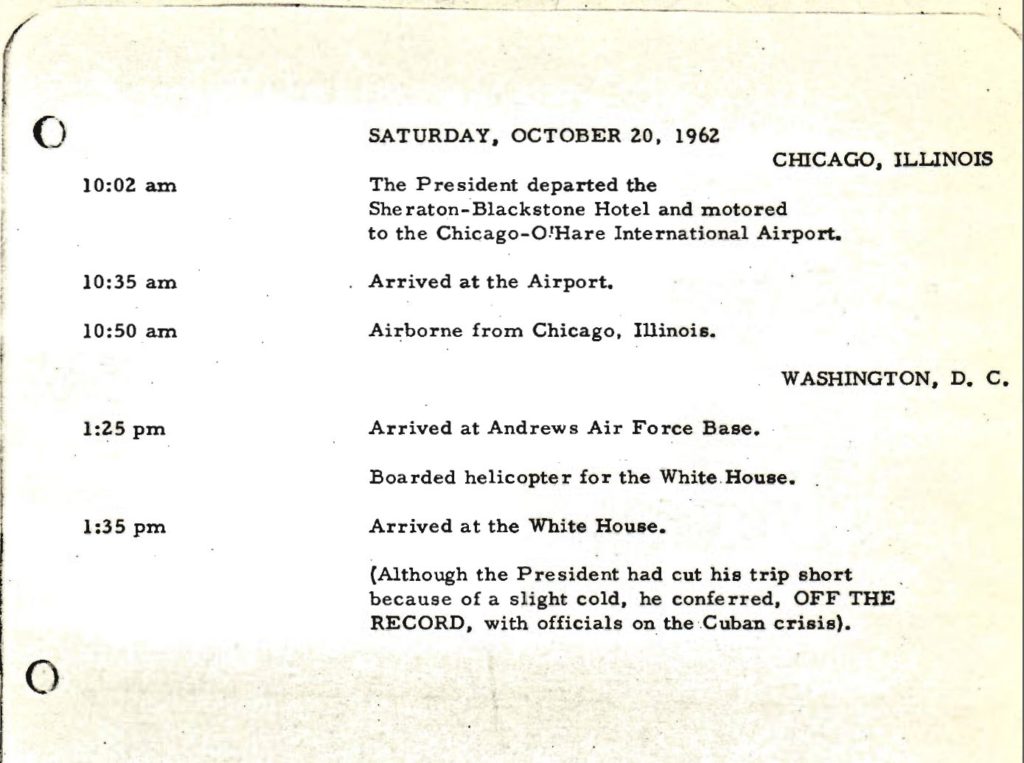
Browse all photos from President Kennedy’s congressional campaign trips:
- Pennsylvania, 20 September 1962
- West Virginia, 27 September 1962
- Cincinnati, Ohio, 5 October 1962
- Detroit, Michigan, 6 October 1962
- Muskegon, Michigan, 6 October 1962
- St. Paul, Minnesota, 6 October 1962
- St. Paul, Minnesota, 7 October 1962
- New York City, 11 October 1962
- Newark, New Jersey, 12 October 1962
- New York City, 12 October 1962
- Aliquippa, Pennsylvania, 12 October 1962
- Pittsburgh, Pennsylvania, 12 October 1962
- McKeesport, Pennsylvania, 13 October 1962
- Monessen, Pennsylvania, 13 October 1962
- Washington, Pennsylvania, 13 October 1962
- Indianapolis, Indiana, 13 October 1962
- Louisville, Kentucky, 13 October 1962
- Niagara Falls, New York, 14 October 1962
- Buffalo, New York, 14 October 1962
- Bridgeport, Connecticut, 17 October 1962
- Cleveland, Ohio, 19 October 1962
- Springfield, Illinois, 19 October 1962
- Chicago, Illinois, 19 October 1962
- Chicago, Illinois, 20 October 1962
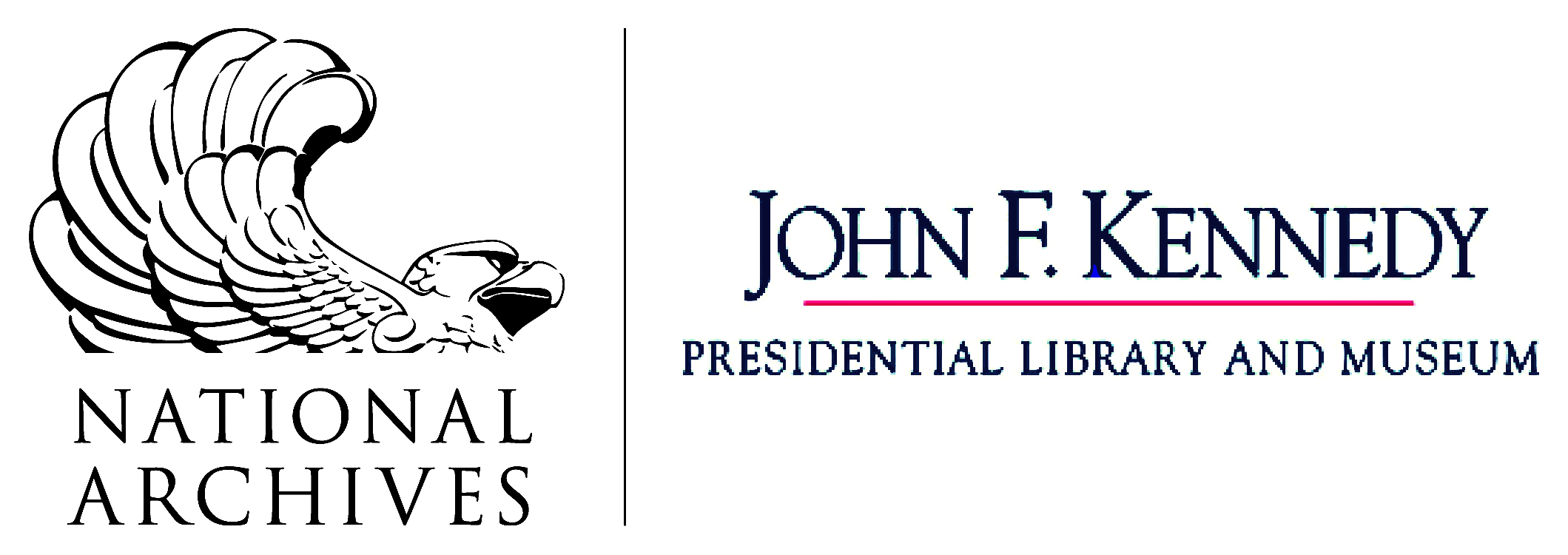
I live near Monessen, and have visited the spot where JFK spoke, Pittsburgh and Washington, Pa. I have a friend in his 60s who was in crowd at the Washington County courthouse on the day Kennedy spoke there. I had the great good luck to interview a guy by the name of Bill Richardson, who was an attorney in Parkersburg, W.Va. Richardson had helped Kennedy win the 1960 West Virginia primary, as a volunteer. He was in Pittsburgh in October 1962 to see the WVU-University of Pittsburgh football and was staying at the William Penn Hotel, where Kennedy wad also staying. Noticing Richardson in the crowd outside the hotel entrance as he returned to Pittsburgh following a full day of campaigning, JFK said, “Bill Richardson, what are you doing here?” “Richardson replied with a white lie. “I came to see you, Mr. President.” The anecdote is included in my book “JFK Rising: The 1960 West Virginia Primary and The Emergence of John F. Kennedy.” The book is available at Amazon.